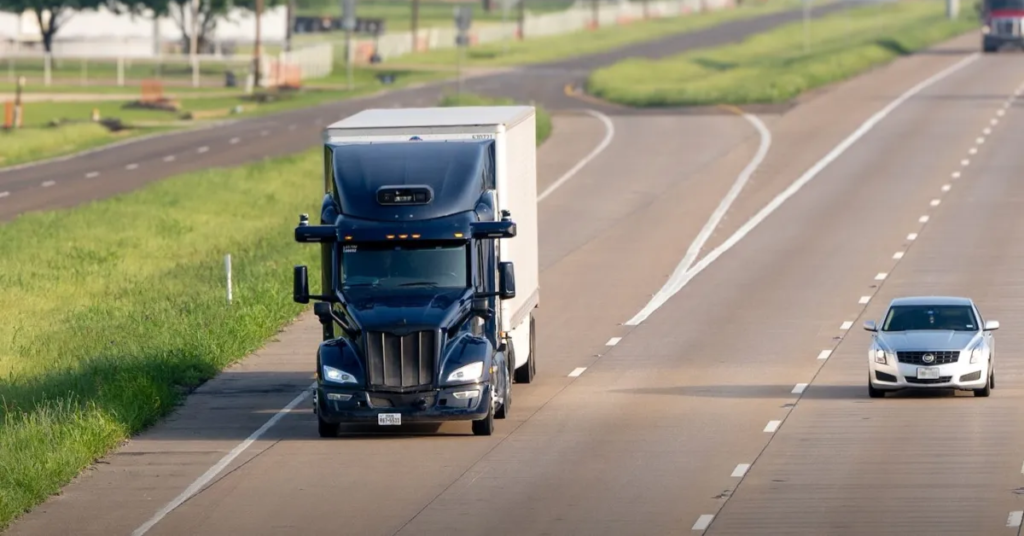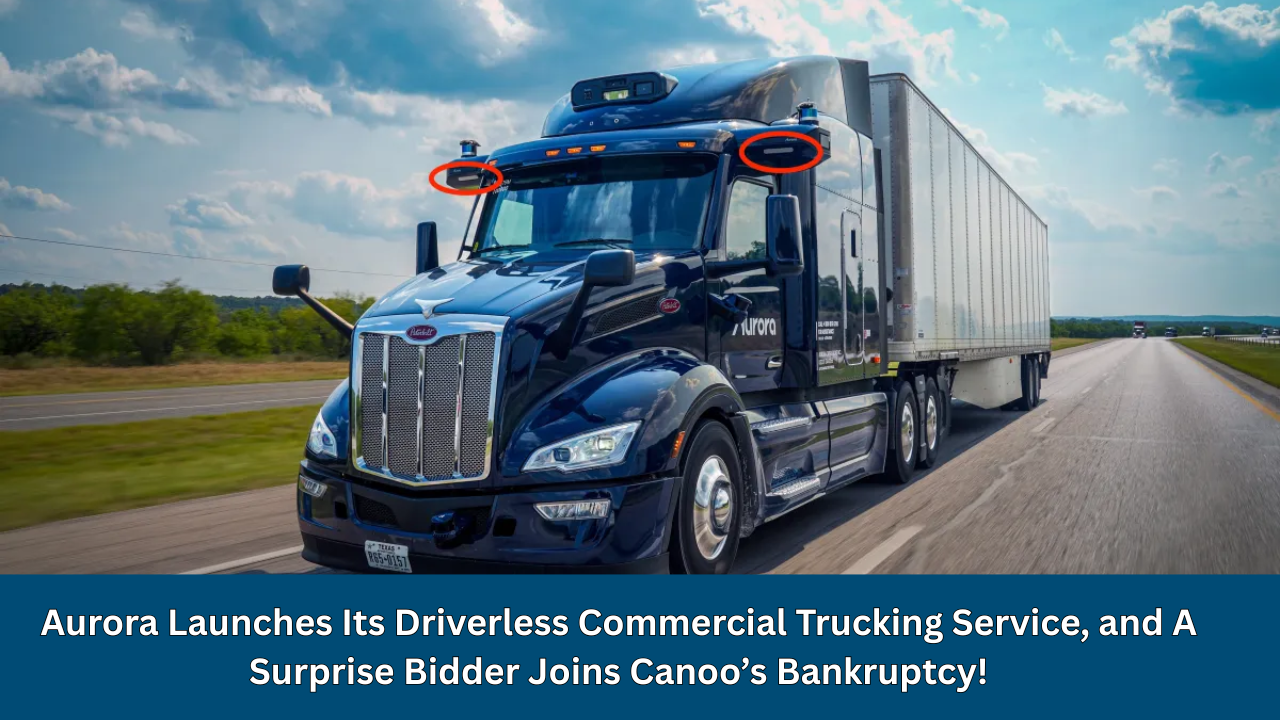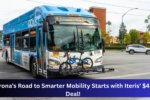Aurora Innovation, a leader in self-driving technology, has officially launched the U.S.’s first fully autonomous commercial trucking service. The company had been aiming for an April 2025 debut but was faced with several delays. Yet, in a remarkable turn of events, Aurora has managed to pull off its ambitious plan with just minutes to spare.
This week, Aurora completed over 1,200 miles of freight deliveries between Dallas and Houston, partnering with prominent customers such as Hirschbach Motor Lines and Uber Freight. Although Aurora is starting small—with just a single truck—the company’s long-term vision is bold: it plans to expand its fleet to include “tens of self-driving trucks” and extend its operations to cities like El Paso and Phoenix by 2025.
The company’s move is monumental not just for Aurora but also for the entire freight transportation industry. As the world grapples with delays caused by Trump’s tariffs and international shipping disruptions, Aurora is positioning itself as a key player in solving these challenges.
However, Aurora’s future success isn’t guaranteed. While the company’s recent achievement is impressive, the ongoing trade disruptions could still pose significant risks to its operations, especially if tariffs continue to create chaos in the global supply chain. Could these setbacks threaten Aurora’s ability to maintain momentum, or will it rise above the challenges and redefine the future of transportation?
Canoo Faces Mysterious Bidder and Legal Uncertainty
Meanwhile, in the world of electric vehicles (EVs), Canoo, a startup aiming to revolutionize the way we think about EVs, is facing a tense bankruptcy proceeding. A surprise bidder from London has thrown a wrench into the company’s ongoing sale process, offering $20 million for Canoo’s assets—an offer that trumps the $4 million bid from Canoo’s own CEO, Anthony Aquila.
This new twist in the case raises serious questions about the fairness of the asset sale process, with the bidder claiming that the CEO’s offer represents a “flawed process.” The outcome of this legal battle will have significant implications for Canoo’s future, with the potential to either breathe new life into the company or mark the end of its journey.
The stakes couldn’t be higher for Canoo, whose bankruptcy proceedings are playing out at a time when the EV industry is facing increasing pressures. Amid the global shift toward greener transportation solutions, Canoo’s struggles serve as a cautionary tale of how challenging it can be to stay afloat in this rapidly evolving industry.
Autonomous Vehicle Developments: A New Wave of Collaborations
In other autonomous vehicle news, May Mobility has joined the ranks of Uber’s autonomous vehicle collaborators. This week, the two companies announced their partnership to deploy May Mobility’s autonomous vehicles on the Uber platform by 2025, starting in Arlington, Texas. This marks another step toward integrating autonomous vehicles into ride-hailing services, which could soon become the norm in cities around the world.

In a similar vein, Momenta, a Chinese autonomous vehicle startup, is working with Uber to launch robotaxis in Europe by 2026. These collaborations are indicative of the growing interest in autonomous vehicles, with major players in the industry recognizing their potential to transform how we travel.
Meanwhile, Waymo and Toyota are reportedly exploring a partnership to develop a new self-driving vehicle specifically designed for ride-hailing services. Although this collaboration is still early days, it shows that companies are working together to unlock the future of autonomous transportation.
EV Industry Faces Challenges Amid Tariffs and Uncertainty
On the electric vehicle front, Rivian is navigating the ongoing challenges presented by tariffs, particularly the impact of President Trump’s policies. The company has built up a large stockpile of batteries for its trucks, SUVs, and commercial vans, which is helping it weather the storm. However, it remains to be seen whether this strategy will be enough to shield Rivian from the long-term effects of trade barriers.
Meanwhile, Tesla’s board is reportedly searching for a successor to CEO Elon Musk. Musk’s recent activities in Washington, coupled with the growing challenges Tesla faces, have led some to question whether the company’s leadership is still in the best hands. Although Tesla’s board chair, Robyn Denholm, denied these reports, the speculation is sure to continue as Tesla faces an uncertain future.
Miscellaneous Developments in Mobility
In a surprising turn, Ford has decided to shut down its FNV4 software architecture initiative. This project, once seen as crucial for competing with EV giants like Tesla, is now being abandoned. The decision marks the end of years of development and raises questions about Ford’s future plans in the EV space.
In the world of air mobility, Joby Aviation has successfully transitioned its evtolz (electric vertical takeoff and landing) aircraft from horizontal to vertical flight for the first time. This achievement is a significant step forward as the company works toward FAA certification and the eventual deployment of its aircraft in urban air mobility applications.
DoorDash and Uber Face Off in Legal Battle
Lastly, in the ride-hailing and delivery sector, DoorDash is fighting back against a lawsuit filed by Uber. The lawsuit accuses DoorDash of stifling competition by pressuring restaurant owners into exclusive deals. DoorDash is pushing for the case to be dismissed, arguing that Uber’s lawsuit is simply a scare tactic designed to avoid facing “real competition.”
This legal battle is another example of the competitive tension in the delivery space, where companies like Uber and DoorDash are constantly vying for market dominance. As the industry continues to evolve, we can expect more of these high-stakes battles to unfold.
Conclusion
The transportation and mobility industries are experiencing rapid changes, with new developments in autonomous vehicles, electric cars, and delivery services. Aurora’s groundbreaking autonomous trucking service represents a major leap forward in freight transportation, while Canoo’s bankruptcy drama highlights the struggles faced by startups in the EV sector. As these companies navigate their respective challenges, the future of mobility remains uncertain, but the potential for innovation is limitless.
TechCrunch Mobility will continue to keep you updated on all the latest developments in this dynamic sector. Stay tuned for more news and insights on the future of transportation.

Deepak Grover is a dedicated content writer at OTE News, specializing in government affairs, public policy, and current events. With a keen eye for detail and a passion for factual reporting, he ensures readers receive accurate and insightful news. Deepak holds a degree in Political Science and has experience in research-driven journalism.
When not writing, he enjoys reading historical books, exploring hiking trails, and staying updated with global political trends. His commitment to ethical journalism makes him a trusted voice at OTE News.




